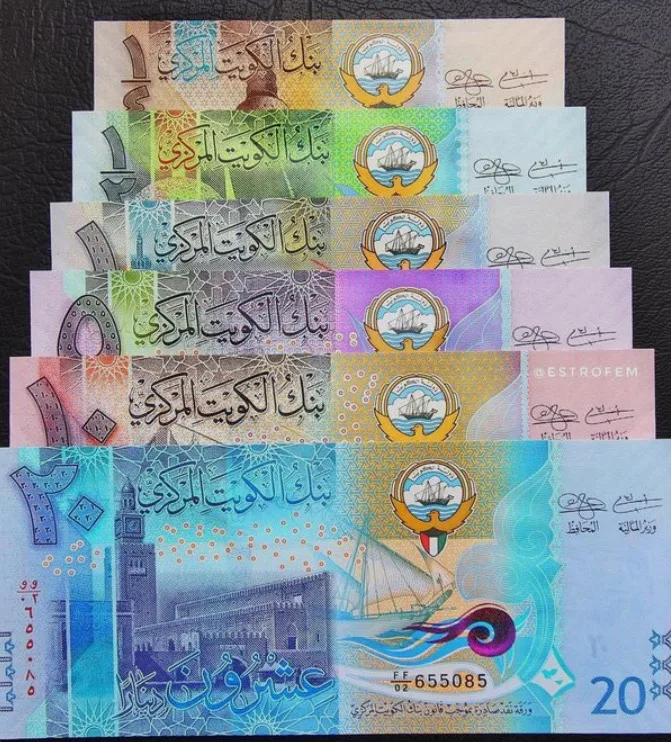Here are the 10 strongest currencies in the world in 2024:
1.Kuwaiti Dinar (KWD)
2.Bahraini Dinar (BHD)
3.Omani Rial (OMR)
4.Jordanian Dinar (JOD)
5.British Pound (GBP)
6.Gibraltar Pound (GIP)
7.Cayman Islands Dollar (KYD)
8.Swiss Franc (CHF)
9.Euro (EUR)
10.US Dollar (USD)
1.Kuwaiti Dinar (KWD)
1KWD=3.24USD
Kuwaiti Dinar (KWD) is the strongest currency in the world. Key reasons and factors that contribute to its high value:
- Oil Wealth: Kuwait has significant oil reserves and is one of the world’s leading oil exporters. The substantial revenue generated from oil exports supports the economy and contributes to the strength of the Kuwaiti Dinar.
- Stable Economy: Kuwait’s economy is relatively stable, with substantial government reserves and a strong banking sector. This economic stability supports a high value currency.
- Currency Peg: The Kuwaiti Dinar is pegged to a basket of international currencies, which helps to maintain its stability and high value. This pegging strategy mitigates extreme fluctuations and keeps the currency strong.
- Limited Supply: The Kuwaiti government maintains a tight control over the supply of the Dinar, which helps to keep its value high. A limited supply of currency, combined with strong demand, contributes to its strength.
- Investment Policies: Kuwait has a sovereign wealth fund, the Kuwait Investment Authority, which invests in global markets. The returns from these investments help to stabilize and strengthen the national currency.
- High Standard of Living: Kuwait has a relatively high standard of living and a strong purchasing power parity, which supports a stronger currency.
- Foreign Exchange Reserves: Kuwait holds substantial foreign exchange reserves, which act as a buffer to support the Dinar in times of economic fluctuations.
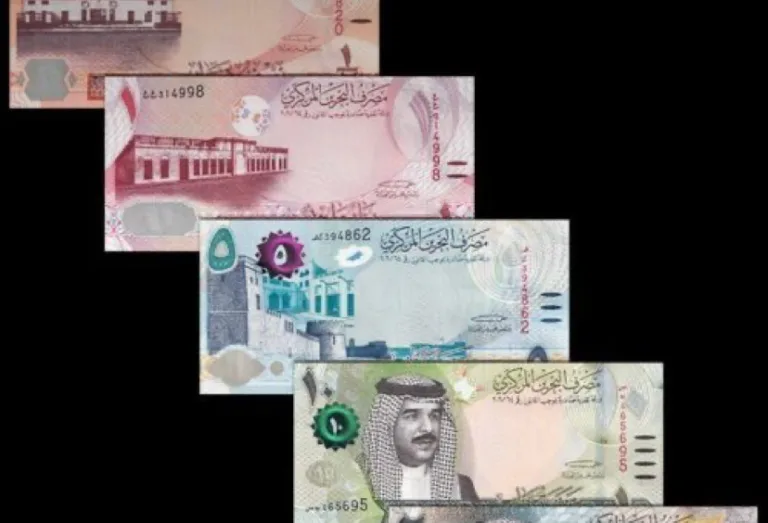
2.Bahraini Dinar (BHD)
1BHD=2.65USD
Bahraini Dinar (BHD) is one of the strongest currencies in the world. Here are some key factors that contribute to its high value:
- Oil and Gas Reserves: Bahrain has significant oil and gas reserves, and the revenue generated from these natural resources is a major contributor to the country’s economy. This wealth supports the value of the Bahraini Dinar.
- Stable Economy: Bahrain has a relatively stable and diversified economy. While the oil sector is significant, Bahrain has also developed its financial services sector, which contributes to economic stability and supports a strong currency.
- Currency Peg: The Bahraini Dinar is pegged to the US Dollar, which helps to maintain its value and stability. The fixed exchange rate reduces currency fluctuation risks and helps keep the Dinar strong.
- Limited Supply: The supply of Bahraini Dinars is carefully managed by the Central Bank of Bahrain. This controlled supply, combined with strong demand, helps maintain the currency’s high value.
- Foreign Exchange Reserves: Bahrain holds substantial foreign exchange reserves, which provide a buffer to support the Dinar in times of economic uncertainty and help maintain its strength.
- Investment Policies: Bahrain’s government policies promote investment, both domestically and internationally. The returns from these investments contribute to economic stability and support the currency’s value.
- High Standard of Living: Bahrain has a high standard of living and strong purchasing power parity, which are reflected in the strength of its currency.
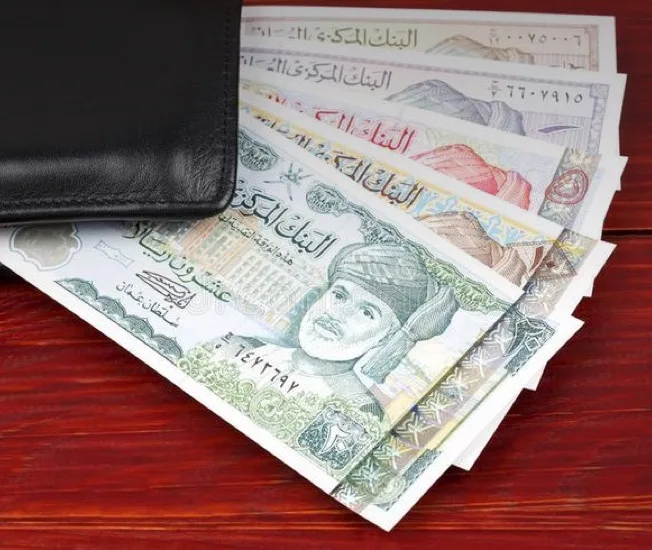
3.Oman Rial(OMR)
1OMR=2.60USD
Omani Rial (OMR) is one of the strongest currencies in the world. Here are some key factors that contribute to its high value:
- Oil and Gas Revenue: Oman has significant oil and gas reserves, and the revenue from these natural resources is a major contributor to the country’s economy. This wealth supports the value of the Omani Rial.
- Stable Economy: Oman has a relatively stable economy with a focus on diversification. While the oil sector remains important, the country has been making efforts to develop other sectors such as tourism, manufacturing, and logistics, which helps to maintain economic stability.
- Currency Peg: The Omani Rial is pegged to the US Dollar at a fixed rate. This pegging strategy helps to maintain the currency’s value and stability by reducing fluctuations and mitigating economic shocks.
- Limited Supply: The Central Bank of Oman carefully manages the supply of Omani Rial, which helps to maintain its high value. Controlled supply, coupled with strong demand, supports the strength of the currency.
- Foreign Exchange Reserves: Oman holds substantial foreign exchange reserves. These reserves provide a financial buffer that supports the Rial during economic fluctuations and maintains investor confidence.
- Investment Policies: Oman has policies in place to attract foreign investment, which helps to diversify the economy and support the currency. The returns from these investments contribute to economic stability.
- High Standard of Living: Oman has a relatively high standard of living and purchasing power parity, which are reflected in the strength of its currency.
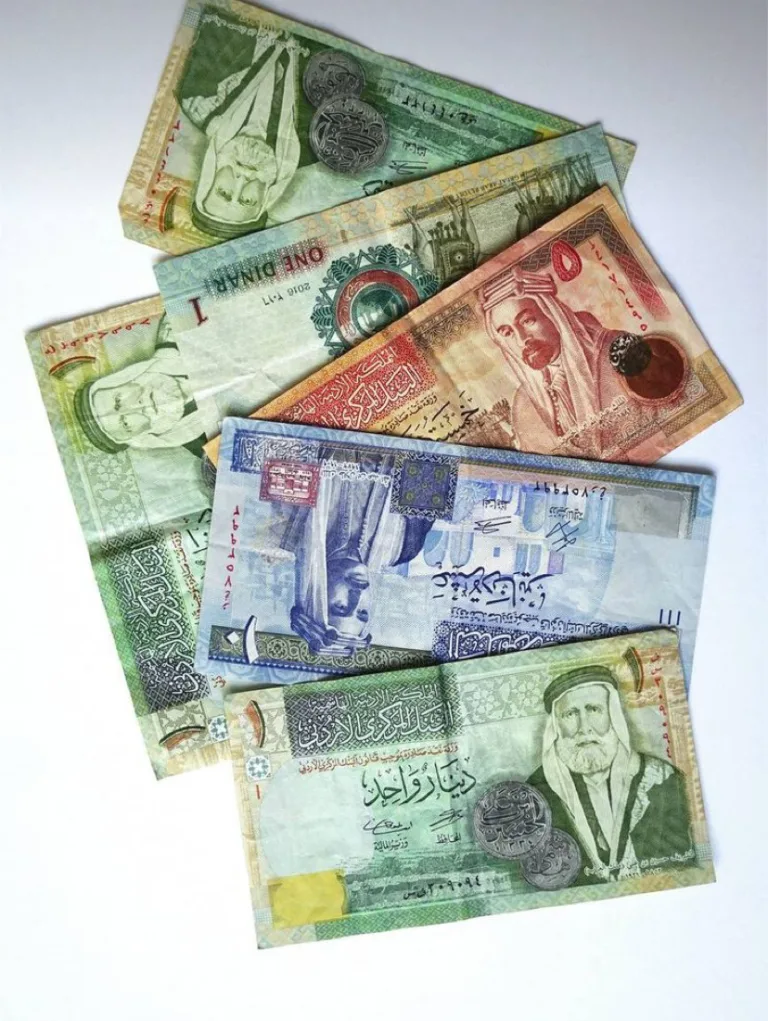
4.Jordanian Dinar (JOD)
1JOD=1.41USD
Jordanian Dinar (JOD) is one of the strongest currencies in the world. Several factors contribute to the high value and stability of the Jordanian Dinar:
- Pegged Exchange Rate: The Jordanian Dinar is pegged to the US Dollar at a fixed exchange rate. This peg helps to maintain stability and reduce exchange rate volatility, making the Dinar a strong and stable currency.
- Economic Stability: Jordan has a relatively stable economy, with diverse sectors including services, industry, and agriculture. The government has implemented policies to promote economic stability and growth, which supports the currency’s value.
- Monetary Policy: The Central Bank of Jordan implements prudent monetary policies to control inflation and maintain the stability of the Dinar. Effective monetary policy helps to ensure confidence in the currency.
- Foreign Exchange Reserves: Jordan maintains substantial foreign exchange reserves, which provide a buffer against economic shocks and support the Dinar’s value. These reserves enhance investor confidence and contribute to the currency’s strength.
- Political Stability: Relative political stability in Jordan contributes to economic stability and investor confidence. Political stability is crucial for maintaining a strong currency.
- Tourism and Foreign Investment: Jordan’s tourism sector, which includes attractions such as Petra and the Dead Sea, along with efforts to attract foreign investment, contributes to foreign exchange earnings and supports the currency.
- Strategic Location: Jordan’s strategic location in the Middle East, along with its free trade agreements and economic partnerships, helps to facilitate trade and investment, further supporting the economy and the Dinar.
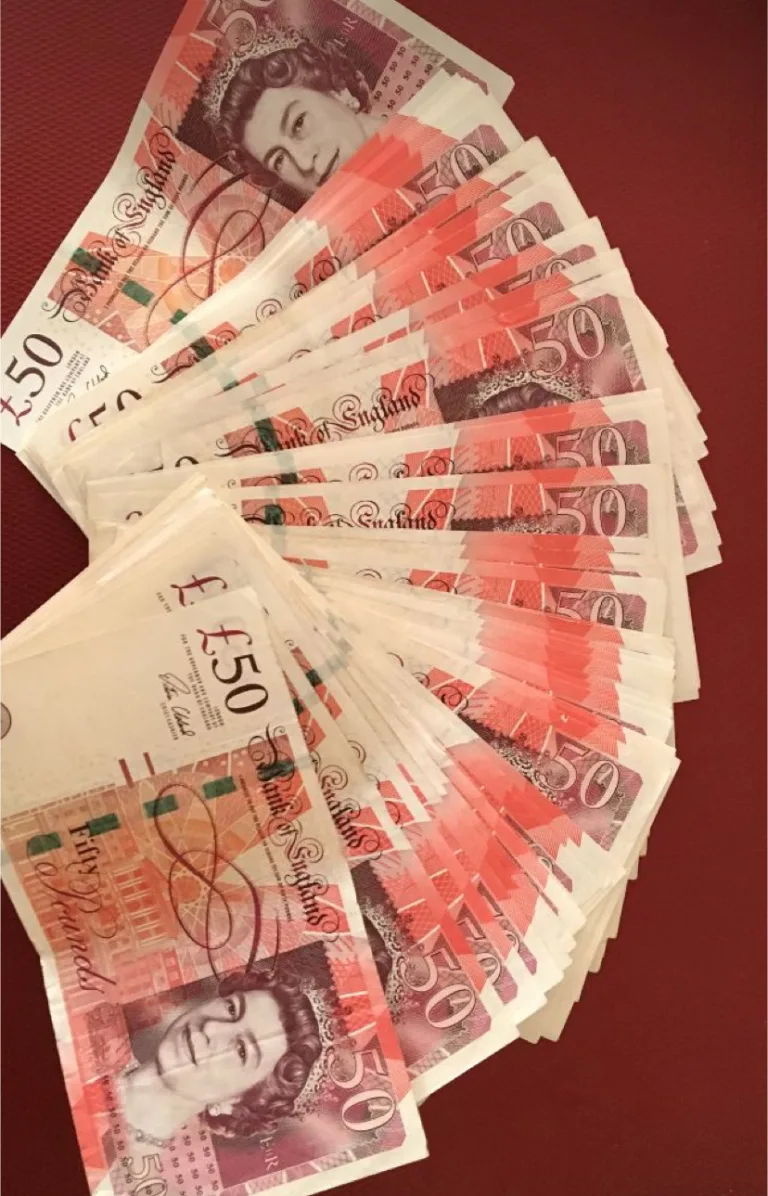
5.British Pound (GBP)
1GBP=1.27USD
British Pound (GBP), also known as the Pound Sterling, is one of the strongest currencies in the world. Here are several key factors that contribute to its high value and global significance:
- Economic Size and Strength: The United Kingdom has one of the largest and most advanced economies in the world. Its diverse economy includes strong sectors such as finance, manufacturing, services, and technology, all of which contribute to the strength of the Pound.
- Financial Hub: London is one of the world’s leading financial centers. The concentration of financial institutions, including banks, investment firms, and insurance companies, generates significant economic activity and supports the value of the Pound.
- Stable Political Environment: The UK has a long history of political stability, a strong legal system, and a reliable regulatory environment. This stability attracts foreign investment and boosts confidence in the British Pound.
- Monetary Policy: The UK’s central bank implements effective monetary policies to control inflation and manage economic growth. The bank’s credibility and actions to maintain financial stability contribute to the strength of the Pound.
- Foreign Exchange Reserves: The UK holds substantial foreign exchange reserves, which provide a buffer against economic shocks and support the value of the Pound.
- Trade and Investment: The UK is a major global trading nation and a key destination for foreign direct investment. Trade relationships and investment inflows contribute to the demand for the Pound and its strength.
- Historical Significance: The British Pound has a long history and has been a key global currency for centuries. This historical significance adds to its prestige and stability.
- Global Reserve Currency: The Pound Sterling is one of the world’s reserve currencies. Central banks and financial institutions around the world hold Pounds as part of their foreign exchange reserves, which helps to maintain its value.
- High Standard of Living: The UK has a high standard of living and strong purchasing power parity, which is reflected in the strength of its currency.
- Brexit and Economic Adjustments: Despite challenges such as Brexit, the UK has managed to maintain the strength of the Pound through economic adjustments, trade negotiations, and maintaining investor confidence.
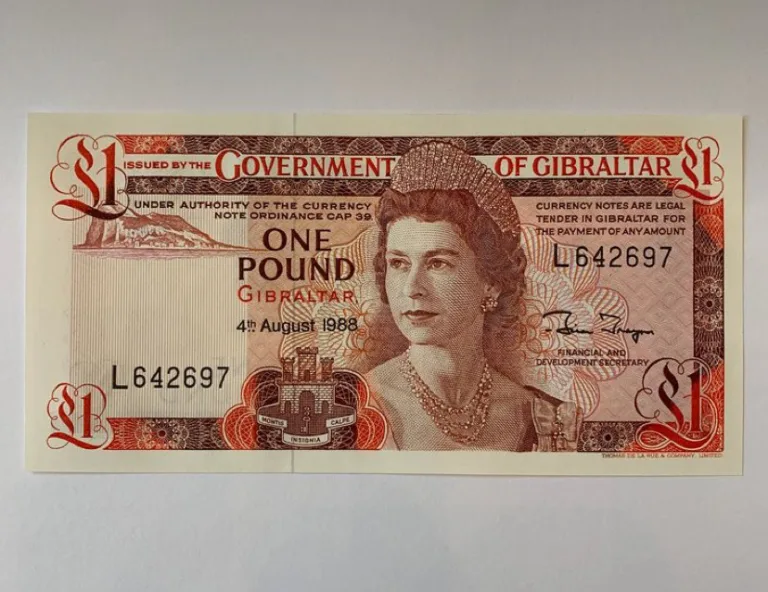
6.Gibraltar Pound (GIP)
1GIP=1.27USD
Gibraltar Pound (GIP) is the official currency of Gibraltar, and while it is not one of the strongest currencies in terms of global prominence or widespread use, it is pegged to the British Pound (GBP) at a one to one exchange rate. This pegging gives the Gibraltar Pound stability and a consistent value relative to the British Pound. Here are some key points about the Gibraltar Pound:
- Pegged to the British Pound: The Gibraltar Pound is pegged to the British Pound Sterling at a 1:1 ratio. This peg ensures that the value of the GIP remains stable and directly tied to the value of the GBP.
- Economic Stability: Gibraltar has a relatively stable economy, with key sectors including tourism, financial services, online gaming, and shipping. The stability of these sectors supports the value of the Gibraltar Pound.
- British Sovereignty: Gibraltar is a British Overseas Territory, and its economic policies and currency stability benefit from its relationship with the United Kingdom. This connection helps to underpin the stability of the GIP.
- Limited Circulation: The Gibraltar Pound is primarily used within Gibraltar and is not widely circulated or traded internationally. This limited use means that it does not experience the same level of market pressures as more widely traded currencies.
- Exchangeability: Within Gibraltar, the British Pound Sterling is also accepted, which provides additional stability and convenience for residents and visitors. Outside Gibraltar, the GIP can be exchanged for GBP at a 1:1 rate.
- Tourism and Financial Services: Gibraltar’s economy benefits from a strong tourism sector and a robust financial services industry, both of which contribute to the economic stability that supports the Gibraltar Pound.
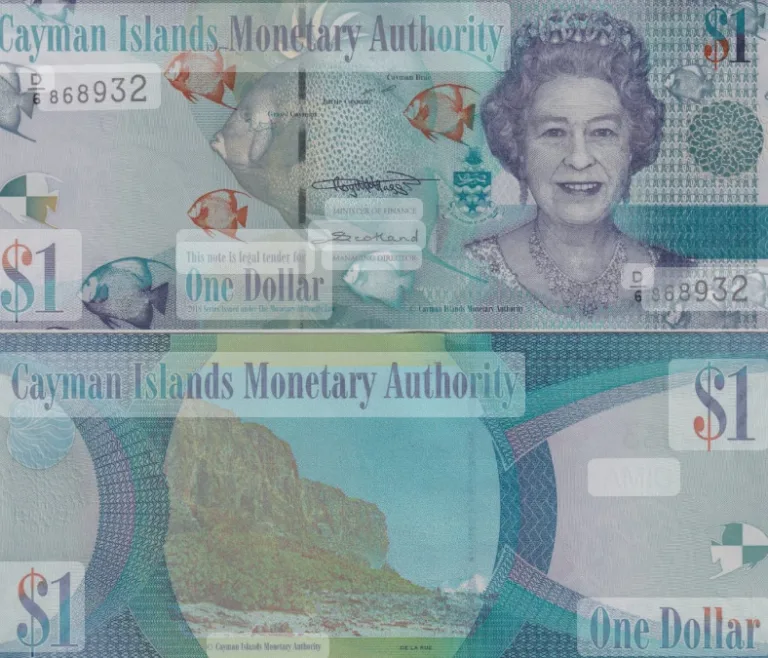
7.Cayman Islands Dollar (KYD)
1KYD=1.20USD
Cayman Islands Dollar (KYD) is one of the stronger currencies in the world, largely due to the economic stability and financial policies of the Cayman Islands. Here are several key factors that contribute to its strength:
- Pegged Exchange Rate: The Cayman Islands Dollar is pegged to the US Dollar (USD) at a rate of 1 KYD to 1.20 USD. This fixed exchange rate helps to maintain the value and stability of the KYD, as it is directly tied to the strength of the US Dollar.
- Financial Services Sector: The Cayman Islands is a major global financial center, known for its robust financial services sector. It is a popular jurisdiction for banking, hedge funds, insurance, and investment funds. The financial services industry is a significant contributor to the local economy and supports the strength of the KYD.
- Tax Policies: The Cayman Islands is known for its favorable tax environment, including the absence of direct taxes such as income tax, capital gains tax, and corporate tax. This attractive tax regime draws businesses and individuals to the islands, supporting economic stability and the value of the KYD.
- Economic Stability: The economy of the Cayman Islands is relatively stable, with strong regulatory oversight and prudent economic management. The government maintains a healthy budget and substantial reserves, which help to ensure economic stability.
- Tourism: Tourism is another important sector for the Cayman Islands, attracting visitors from around the world to its beaches, resorts, and marine life. Tourism revenue contributes to the overall economic health and supports the value of the KYD.
- Foreign Exchange Reserves: The Cayman Islands maintains substantial foreign exchange reserves, providing a buffer against economic fluctuations and helping to support the fixed exchange rate with the US Dollar.
- High Standard of Living: The Cayman Islands has a high standard of living and strong purchasing power parity. The wealth generated from the financial services and tourism sectors contributes to the economic prosperity of the islands.
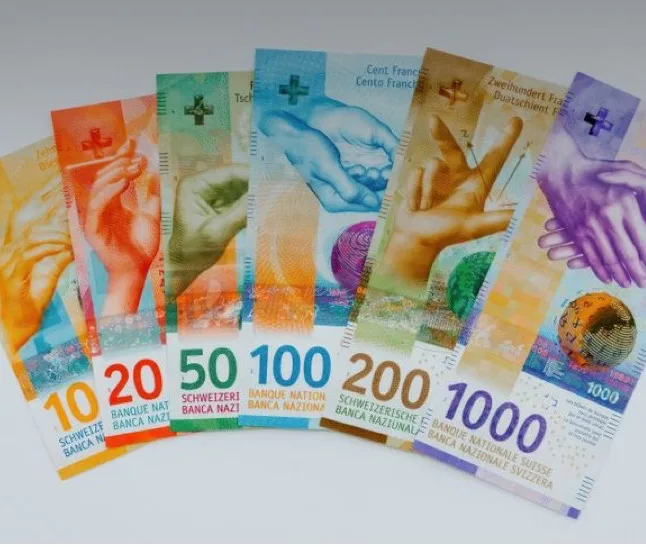
8.Swiss Franc (CHF)
1CHF=1.10USD
Swiss Franc (CHF) is one of the strongest and most stable currencies in the world. Several factors contribute to its strength:
- Economic Stability: Switzerland has a highly developed and stable economy, known for its low unemployment rate, high GDP per capita, and diversified economic sectors. The country’s economic stability supports a strong currency.
- Political Stability: Switzerland is known for its long standing political neutrality and stability. This political environment attracts foreign investment and supports confidence in the Swiss Franc.
- Strong Financial Sector: Switzerland is a global financial hub, with a highly developed banking and financial services sector. Swiss banks are renowned for their stability, security, and confidentiality, contributing to the strength of the Swiss Franc.
- Low Inflation: The Swiss National Bank (SNB) maintains a monetary policy aimed at price stability, resulting in consistently low inflation rates. This contributes to the purchasing power and value of the Swiss Franc.
- Safe Haven Currency: The Swiss Franc is often considered a “safe haven” currency, particularly during times of global economic uncertainty or geopolitical tensions. Investors flock to the Swiss Franc as a secure store of value, which increases demand and supports its strength.
- Strong Foreign Exchange Reserves: Switzerland maintains substantial foreign exchange reserves, which provide a buffer against economic shocks and support the stability of the Swiss Franc.
- Prudent Fiscal Policies: The Swiss government follows prudent fiscal policies, with a strong emphasis on maintaining balanced budgets and low levels of public debt. This fiscal responsibility supports confidence in the Swiss Franc.
- Robust Trade and Investment: Switzerland has a robust trade environment, with strong exports in sectors such as pharmaceuticals, machinery, and financial services. The country’s strong trade performance and investment climate support the value of the Swiss Franc.
- High Standard of Living: Switzerland has a high standard of living, strong infrastructure, and high levels of innovation and productivity. These factors contribute to the overall strength of the economy and, by extension, the Swiss Franc.
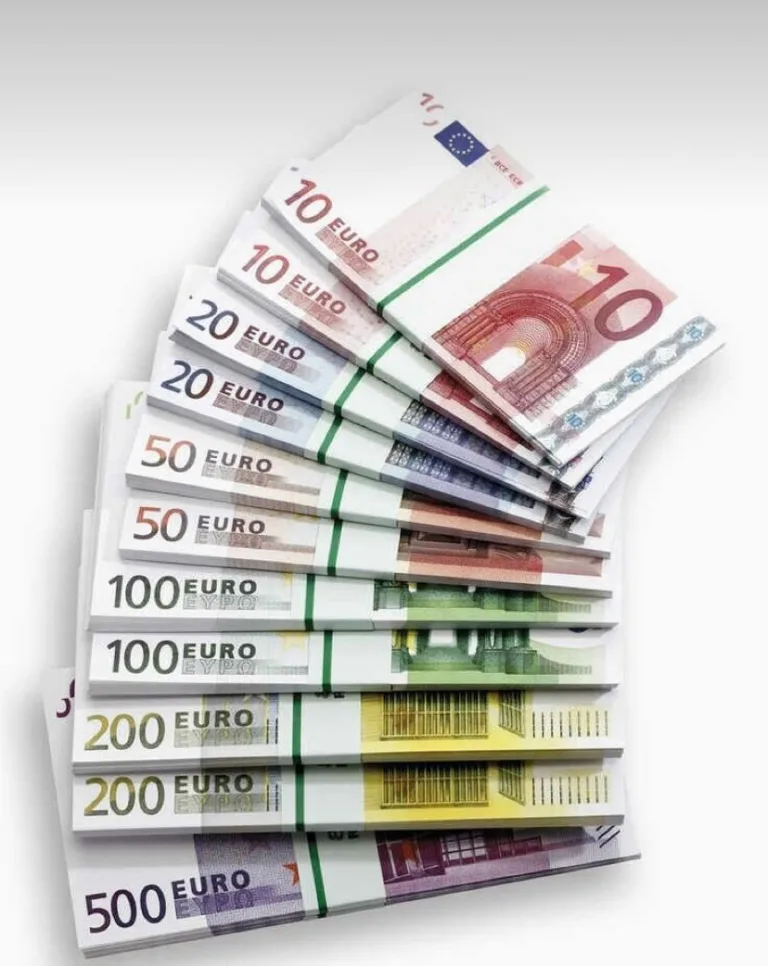
9.Euro (EUR)
1EUR=1.06USD
The Euro (EUR) is one of the strongest and most significant currencies in the world. Here are several factors that contribute to its strength:
- Large Economic Bloc: The Euro is the official currency of the Eurozone, which comprises 20 of the 27 European Union (EU) member countries. This makes it the second most widely used currency in terms of global reserves and the second most traded currency in the world, after the US Dollar.
- Economic Strength: The Eurozone includes some of the world’s largest and most advanced economies, such as Germany, France, Italy, and Spain. The combined economic output of the Eurozone countries makes the Euro a strong and stable currency.
- Political and Economic Integration: The Euro is a symbol of the political and economic integration within the European Union. This integration provides a framework for economic stability and policy coordination among member states, supporting the strength of the Euro.
- European Central Bank (ECB): The ECB is responsible for the monetary policy of the Eurozone. It aims to maintain price stability by controlling inflation and implementing effective monetary policies. The credibility and actions of the ECB contribute to the strength and stability of the Euro.
- Reserve Currency: The Euro is one of the world’s major reserve currencies. Many central banks hold significant amounts of Euros in their foreign exchange reserves, which supports its value and stability.
- Trade and Investment: The Eurozone is a major global trading bloc. The extensive trade relationships and significant foreign investment flows into and out of the Eurozone contribute to the demand for the Euro.
- Diversified Economy: The economies within the Eurozone are highly diversified, encompassing a wide range of industries including manufacturing, services, agriculture, and technology. This diversification helps to mitigate economic risks and supports the overall strength of the Euro.
- Financial Markets: The Eurozone has well developed financial markets, including major financial centers such as Frankfurt and Paris. These markets enhance the liquidity and attractiveness of the Euro.
- Structural Reforms and Policies: Eurozone countries have undertaken various structural reforms and fiscal policies to promote economic growth and stability. These efforts help to strengthen the economic foundation of the Euro.
- High Standard of Living: The Eurozone countries generally have a high standard of living, strong infrastructure, and high levels of innovation and productivity. These factors contribute to the overall economic health and stability of the Euro.

10.US Dollar (USD)
The United States Dollar (USD) is one of the strongest and most influential currency in the world. Here are several reasons why the USD is considered a strong currency:
- Global Reserve Currency: The US Dollar is the world’s primary reserve currency, held by central banks and governments around the world as part of their foreign exchange reserves. Its status as the global reserve currency gives it unparalleled liquidity and demand, reinforcing its strength.
- Large Economy: The United States has the world’s largest economy, with diverse sectors including finance, technology, manufacturing, energy, and services. The size and strength of the US economy support the value of the Dollar.
- Financial Center: New York City is a global financial hub, home to major stock exchanges, banks, investment firms, and other financial institutions. The dominance of the US financial sector contributes to the Dollar’s strength and stability.
- Safe Haven Status: During times of geopolitical uncertainty or economic instability, investors often flock to safe haven assets, including the US Dollar. Its perceived stability and security make it a preferred currency during turbulent times, boosting its value.
- Monetary Policy: The US Federal Reserve, the country’s central bank, plays a crucial role in shaping monetary policy. The Fed’s policies influence interest rates, inflation, and the overall health of the economy, impacting the value of the Dollar.
- Rule of Law and Stability: The United States is known for its strong legal system, political stability, and respect for property rights. These factors create a favorable environment for investment and support confidence in the Dollar.
- High Liquidity: The US Dollar is the most widely traded currency in the world, with a vast market of buyers and sellers. Its high liquidity ensures that transactions can be executed quickly and efficiently, further enhancing its strength.
- Global Trade: The US Dollar is the dominant currency for international trade, with many commodities such as oil priced and traded in Dollars. The widespread use of the Dollar in global trade contributes to its strength and influence.
- Debt Issuance: The United States Treasury issues US Dollar denominated debt securities, including Treasury bills, notes, and bonds. These securities are widely held by investors worldwide, further supporting demand for the Dollar.
- Innovation and Technology: The United States is a leader in innovation and technology, with vibrant sectors such as Silicon Valley driving economic growth and attracting investment. The dynamism of the US economy reinforces confidence in the Dollar.

